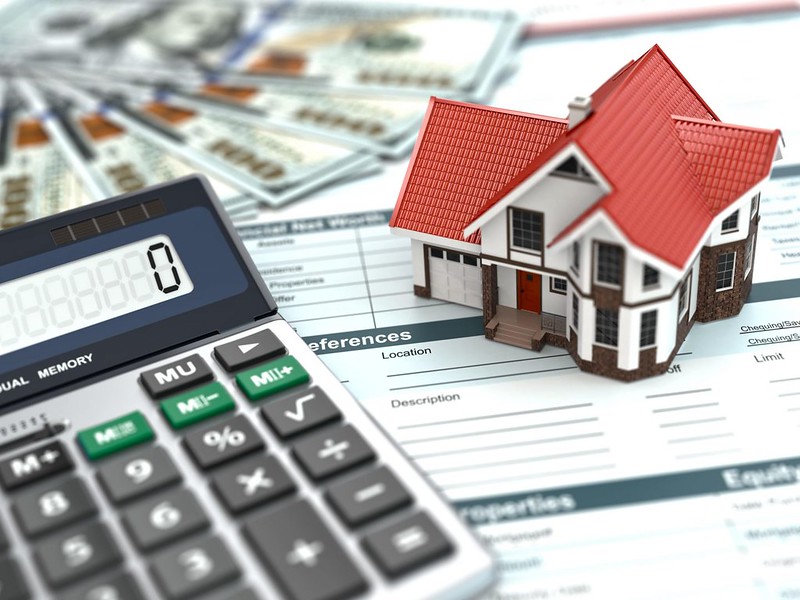Comparing mortgage rates and knowing how to choose the best one could help you save costs on your mortgage journey.
Whether you’re a first-time home buyer or looking to refinance or renew your existing mortgage, shopping for the best mortgage is a smart move.
We have seen frequent mortgage rates increase in Canada this year which is influenced by the COVID-19 pandemic, inflation and the ongoing war in Ukraine.
Amidst all of this, some mortgage lenders still manage to stand out from the competition by offering low-cost fixed and variable mortgage rates.
So what are the best mortgage rates in Canada? How do they compare with the past rates? How do you choose the best mortgage rates?
This article provides answers to these questions and more to help make your dream become a reality.

Table of Contents
Best Mortgage Rates in Canada For 2022
The best mortgage rates in Canada refer to mortgage rates that are relatively low compared to the average rates.
To determine the best mortgage rates, we identify lenders with regular 5-year fixed and variable mortgage rates between 4% to 5%.
While some lenders offer special rates which are relatively lower than the regular rates, they are exempted from this compilation because of their temporal benefits.
That being said, below are the best 5-year fixed mortgage rates in Canada.
| Lender | 5-Year Fixed Rate |
| Butler Mortgage | 4.28% |
| Pine | 4.29% |
| nesto | 4.39% |
| HSBC | 5.14% |
| CIBC | 5.17% |
| BMO | 5.24% |
| TD | 5.24% |
| Tangerine | 5.29% |
On the other hand, the following are the best 5-year variable mortgage rates in Canada at the moment.
| Lender | 5-Year Variable Rate |
| Butler Mortgage | 4.19% |
| nesto | 4.20% |
| Pine | 4.30% |
| HSBC | 4.84% |
| CIBC | 5.14% |
| Tangerine | 5.15% |
| TD | 5.20% |
| BMO | 5.20% |
From the above compilation, Butler Mortgage appears to be the overall best provider of fixed and variable mortgage rates in Canada.
Butler is a Toronto-based mortgage broker that partners with several mortgage providers to offer you access to the best mortgage deals.
From mortgage purchases, and renewals, to refinancing, you can count on Butler in getting the best mortgage deals in Canada.
Historical Canadian Mortgage Rates
With the forces of demand and supply, inflation, and government bond interest, there have been consistent changes in Canadian mortgage rates over time.
Inflation has been the key influencer of variable mortgage rates whereas government bond yields impact fixed mortgage rates.
To understand how Canadian mortgage rates changed over time, the following table highlights the historical conventional 5-year mortgage rates from 2010 to 2022:
| Year | Rate |
| 2022 | 5.58% |
| 2021 | 3.45% |
| 2020 | 3.34% |
| 2019 | 4.08% |
| 2018 | 4.59% |
| 2017 | 4.07% |
| 2016 | 3.74% |
| 2015 | 3.75% |
| 2014 | 3.98% |
| 2013 | 4.39% |
| 2012 | 4.15% |
| 2011 | 4.36% |
| 2010 | 4.50% |
Source: Statistic Canada
How Mortgage Rates are Determined in Canada
Banks and other mortgage lenders in Canada don’t just set mortgage rates arbitrarily. Their decision is guided by several factors with the major being the Bank of Canada’s overnight rate and government bond interest.
The Bank of Canada’s overnight rate is set by the central bank of Canada based on inflation and other market conditions. An increase in the overnight rate leads to an increase in a financial institution’s prime rate as it makes borrowing more costly.
Accordingly, an increase in financial institutions’ prime rates leads to an increase in variable mortgage rates. From March to September 2022, the Bank of Canada has increased the overnight rate up to 5 times. This translates to the historic frequent changes in variable rates.
On the other hand, an increase in government bond interest leads to a decrease in bond value. In this case, financial institutions that invest in government bonds increase their fixed mortgage rates to offset the cost of bond devaluation.
That being said, financial institutions also set their mortgage rates based on the personal and financial circumstances of each applicant. The following are the major factors that they usually consider when determining the individual rate:
1. Mortgage Term
A mortgage term does not only determine the duration of your mortgage contract but the interest rate as well.
Usually, the higher the mortgage term, the higher the mortgage rate. Your mortgage term also determines your regular payment amounts and the overall cost of your mortgage.
Different mortgage lenders offer different mortgage terms. But the popular mortgage terms are short-term, long term and conventional term.
- Short-Term Mortgage
As the name implies, a short-term mortgage has a short contract length usually 3 years or less. Because the duration of the mortgage contract renewal is shorter, you will enjoy a lower mortgage rate with this type of mortgage.
While a short-term mortgage offers more flexibility, it may cost you higher at the end of your mortgage contract, depending on the current market conditions.
- Long-Term Mortgage
A long-term mortgage is the direct opposite of a short-term mortgage. It has a long contract length and the interest is relatively higher. However, a long-term mortgage protects you against sudden rate increases as you would not be renewing your mortgage frequently.
For example, if your mortgage amortization period is 20 years and you sign-up for a 10-year mortgage term, you will only renew your mortgage once, thereby protecting yourself from a further rate increase.
But for someone with the same mortgage amortization period under a 2-year shorter mortgage, they have to renew their mortgage up to 9 times to cover the contract. In the end, your long-term mortgage could save you more at the end of the mortgage contract.
- Convertible Term Mortgage
A convertible term mortgage allows you to extend your short-term mortgage to a long-term period. While this will increase your mortgage interest to the long-term standard, it will save you from frequent renewals.
If you also want to switch between open and closed mortgages in the future, a convertible mortgage is the perfect term to choose.
2. Mortgage Type
Another factor that determines your mortgage rate in Canada is the type of mortgage you’re applying for. It could be for a new mortgage purchase, mortgage renewal or mortgage refinancing.
In all of this, the interest of mortgage refinancing is relatively higher compared to the interest of a new mortgage purchase and a mortgage renewal.
But if you have an existing mortgage with a minimum of 20% equity, you can access a low-interest mortgage through a home equity line of credit (HELOC).
Finally, commercial properties usually have higher mortgage rates compared to residential properties.
3. Down Payment
The minimum down payment required by most lenders in Canada is 20% of the property value. Notwithstanding, you can still access a mortgage even if your down payment is less than 20%.
However, you will need to buy Canada Mortgage and Housing Corporation (CMHC) insurance because a less than 20% down payment means a high-ratio mortgage. By buying the CMHC insurance, your mortgage payment will increase and the lender will be covered in case you default on your payment
4. Amortization Period
The amortization period defines the contract length of your whole mortgage. Depending on your down payment, you can be eligible for up to 25 years amortization period from most lenders.
Not only does the amortization period determines your mortgage interest, but it also impacts the overall cost of the mortgage and your regular payment amounts.
While a longer amortization period helps you make a lower regular payment, the interest rate will be higher than a shorter amortization period.
5. Credit Score
A mortgage is one of the credit-weighted products in Canada. So you should expect your credit score to play a major role in the amount of mortgage you qualify for and the mortgage rate.
It’s worth stating that the displayed mortgage rates lenders provide are not accessible to all. It’s your credit score and other related personal financial factors that will determine your actual mortgage rate.
Each lender may have a different rating for a good credit score according to the model of the credit bureau they use.
Since a mortgage lender has to perform a credit check to confirm your score, you should expect your score to drop temporarily due to a hard check.
6. Income
What does your pay stub or tax document say about your income? Lenders also consider your income when determining your mortgage rate in Canada.
To verify your income level, you will need to provide the leader with income proof such as your pay stubs and tax documents.
In addition, your job durability will also determine your mortgage rate and eligibility. Having less than 1-year job history will put you in a disfavourable position if you’re salaried.
7. Debt Ratios
Finally, mortgage lenders also consider your debt ratios when determining your mortgage rate. The key debt ratios lenders look at are known as Gross Debt Service (GDS) and Total Debt Service (TDS).
The GDS ratio indicates the amount of housing costs that are deducted from the pre-tax income of your household. This encompasses your property taxes, utilities and mortgage payments. To be on the favourable side, your GDS ratio should not be more than 32% of your annual gross income.
On the other hand, the TDS ratio indicates both your housing debts, credit card debts, student loans and other loans. If your TDS ratio exceeds 44% of the pre-tax income of your household, you will be in a disadvantageous position.
Overall, the lower your debt ratios, the better mortgage rates you will access in Canada.
Types of Mortgage Rates in Canada
Now that you know the best mortgage rates in Canada and how they’re determined, it’s essential you understand the different types of mortgage rates out there.
There are different types of mortgage rates but they can be categorized into two: fixed rates and variable rates. Below is a brief explanation of each.
1. Fixed Mortgage Rate
A fixed mortgage rate refers to a mortgage rate that remains the same throughout a given mortgage term. The rate is usually determined by the performance of government bonds.
For example, if you sign-up for a 5-year fixed mortgage term with a 4.00% interest, the interest rate will remain the same for 5 years.
While fixed rates are higher, they protect you against sudden rate hikes that might be influenced by market conditions, helping reduce your overall mortgage costs.
If you are risk-averse or want to take the advantage of a special mortgage rate, you can’t go wrong with a fixed mortgage rate.
2. Variable Mortgage Rate
A variable mortgage rate is the opposite of a fixed mortgage. That’s to say, a variable rate can change within a given mortgage term length.
Variable rates are determined by prime rates and they can change at any time based on inflation and other market forces.
Compared to fixed mortgage rates, variable rates are usually lower. However, their instability can impact your overall mortgage costs at the end of the contract. Hence, variable mortgage rates are more suitable for high-risk persons with a steady income.
How Do I Get the Best Mortgage Rate in Canada?
When looking for the best mortgage rate in Canada, you need to look beyond the interest rate. Of course, the mortgage rate is the starting point but other important factors, such as APR, also count.
The annual percentage rate (APR) covers the entire costs of a mortgage, cutting across the interest rate and other applicable fees. So knowing the APR will help you understand the actual cost of buying a mortgage with a given lender. To save more, sign-up with a lender that has a lower mortgage interest rate and APR.
In addition, you need to understand the application process, mortgage terms and conditions, and the reputation of the lender.
Overall, you can’t go wrong with any of the above best mortgage rates in Canada.
Buying a Mortgage in Canada: What is Involved?
After getting the best mortgage rate, the next step is to initiate the application process. Different lenders have different requirements and application processes.
But if you’re not sure how to get started, you should consider using a mortgage broker who can guide you throughout the application process using their in-depth knowledge of the industry.
Another advantage of mortgage brokers is that they partner with several mortgage providers, making it easy to compare and choose from the best mortgage deals.
However, you can buy a mortgage directly through a mortgage provider if you can handle the entire application process or have a financial advisor by your side.
Finally, if you’re shopping for the best mortgage rates for your second mortgage, here are 5 strong tips for buying a second property to consider.
The Bottom Line
There you have the best mortgage rates in Canada. Where do you go from here? Kindly let me know in the comment section.
If you also need more clarification on choosing the best mortgage rates in Canada, don’t hesitate to let me know. Better still, you should carry your financial advisor throughout the selection and application process.
Above every other thing, ensure you understand what’s involved in choosing the best mortgage rate and the application process. Comparing different mortgage lenders will help you make an informed decision in choosing a suitable mortgage for your needs.
Best Mortgage Rates in Canada: FAQs
Depending on your down payment, you can get a 30-year amortization period on a fixed mortgage rate in Canada. However, not many lenders offer up to a 30-year amortization period in Canada.
Sure! As with other loans, mortgage rates are also negotiable depending on the lender and individual’s situation. So you can negotiate a better deal with a mortgage lender successfully in Canada.
Credit score requirements on mortgage applications vary from one lender to the other. Having a 700 or higher credit score will put you in a favourable position but you can also get approved with less than a 700 score.
Mortgage brokers usually get better rates than stand-alone providers. The reason is that mortgage brokers partner with different mortgage providers, so it’s easy to compare and choose the best rate through them.

